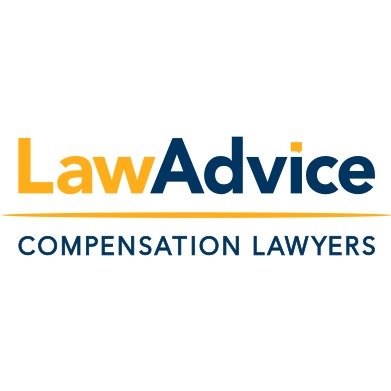Best Drugs & Medical Devices Lawyers in Wagga Wagga
Share your needs with us, get contacted by law firms.
Free. Takes 2 min.
List of the best lawyers in Wagga Wagga, Australia
About Drugs & Medical Devices Law in Wagga Wagga, Australia
The legal landscape for Drugs & Medical Devices in Wagga Wagga, Australia is primarily regulated by state and federal laws. Central to these regulatory frameworks is the Therapeutic Goods Act 1989, which establishes a national system of controls for the quality, safety, efficacy and timely availability of therapeutic goods, including drugs and medical devices. Therapeutic goods must register or list on the Australian Register of Therapeutic Goods before they can be supplied in Australia.
Why You May Need a Lawyer
Legal expertise can be essential when dealing with issues concerning Drugs & Medical Devices law. For example, if you are a manufacturer or supplier of medical drugs/devices, you may need a lawyer to ensure you comply with the regulatory requirements. If you are a healthcare provider, a lawyer can guide you through the process of purchasing and using these products while complying with relevant laws. As a consumer, you might require legal advice if you believe you have been harmed by a drug or medical device. Lawyers can assist in understanding and protecting your rights in these cases.
Local Laws Overview
In Wagga Wagga, aspects of the Drugs & Medical Devices law of interest include the sale, supply, advertising, and manufacturing of drugs and medical devices. All drug advertisements must comply with the Therapeutic Goods Advertising Code. Selling or supplying unregistered therapeutic goods, including drugs and medical devices, is illegal unless special exemptions, approvals or authorities apply under relevant regulations.
Frequently Asked Questions
1. What are the side effects and risk disclosures that a manufacturer needs to provide about a drug or medical device?
Manufacturers must provide a comprehensive list of possible side effects and risks related to their products. This requirement is covered under the Therapeutic Goods Act 1989 and its associated regulations.
2. Can I make a claim if a medical device has caused an injury?
Yes. If you have been harmed by a medical device, you can potentially make a claim against either the manufacturer, the healthcare provider, or both. It's advisable to seek legal advice to understand your rights and the best course of action.
3. How do I lodge a complaint about a medical device?
Complaints about medical devices can be lodged with the Therapeutic Goods Administration. However, legal advice might be beneficial to ensure that your complaint is effectively communicated and properly handled.
4. Can any product be sold as a medical device or drug in Australia?
No. To be sold legally, drugs and medical devices must be registered in the Australian Register of Therapeutic Goods and need to comply with relevant laws and regulations.
5. What consequences can a manufacturer or supplier face for violating these laws?
Potential consequences include penalties, product seizure, injunctions or prosecution. Additionally, these legal breaches can lead to reputational damage and loss of public trust.
Additional Resources
The Therapeutic Goods Administration (TGA) is the primary Australian government agency regulating medicines and medical devices. Its website offers a wealth of information and resources about regulatory requirements and compliance. The Australian Competition and Consumer Commission (ACCC) is another resource that offers advice and handles complaints about consumer rights and protections in relation to these goods.
Next Steps
If you need legal assistance regarding Drugs & Medical Devices law in Wagga Wagga, start by identifying a lawyer with expertise in this field. Prepare a comprehensive description of your issue and any relevant documentation before your consultation. It's important to proactively gather all relevant information to assist your lawyer in providing the best advice. Always remember to clarify any doubts or questions you have during the consultation process.
Lawzana helps you find the best lawyers and law firms in Wagga Wagga through a curated and pre-screened list of qualified legal professionals. Our platform offers rankings and detailed profiles of attorneys and law firms, allowing you to compare based on practice areas, including Drugs & Medical Devices, experience, and client feedback.
Each profile includes a description of the firm's areas of practice, client reviews, team members and partners, year of establishment, spoken languages, office locations, contact information, social media presence, and any published articles or resources. Most firms on our platform speak English and are experienced in both local and international legal matters.
Get a quote from top-rated law firms in Wagga Wagga, Australia — quickly, securely, and without unnecessary hassle.
Disclaimer:
The information provided on this page is for general informational purposes only and does not constitute legal advice. While we strive to ensure the accuracy and relevance of the content, legal information may change over time, and interpretations of the law can vary. You should always consult with a qualified legal professional for advice specific to your situation.
We disclaim all liability for actions taken or not taken based on the content of this page. If you believe any information is incorrect or outdated, please contact us, and we will review and update it where appropriate.








